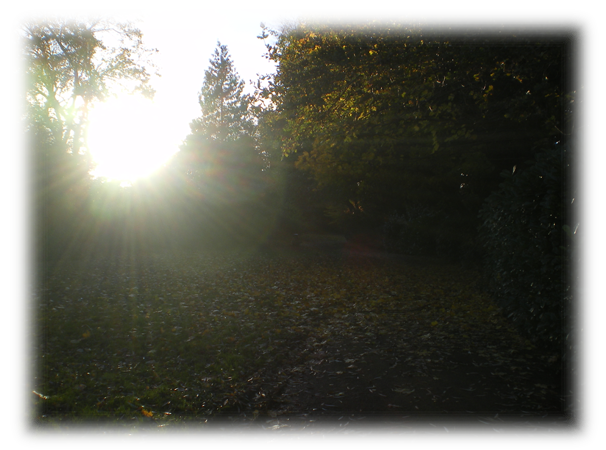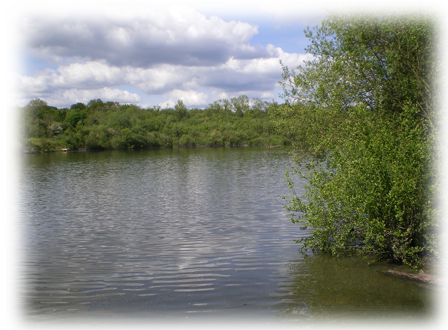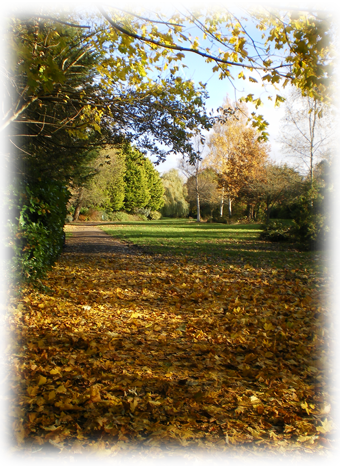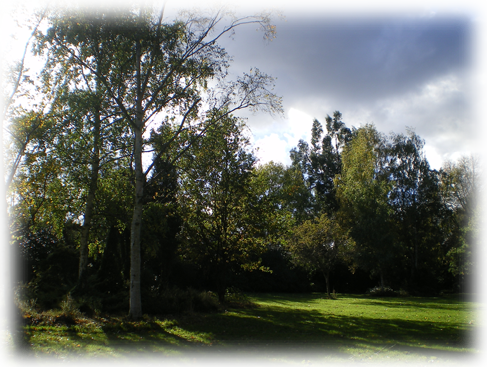
Send us an Email
For general hypnotherapy please visit The Apple Tree

For general hypnotherapy please visit The Apple Tree




International Association for Near-Death Studies
This is the page dedicated to our Free IANDS – London Discussion Group on Near-Death and Other Spiritual Experiences, the first and only one in the UK.
As its creator and facilitator, I would like to invite you to join us in our meetings. Our group’s primary purpose is to be a peer support group for everyone who has had an NDE or any other spiritual experience – and would like to share and discuss them together – and for all those with a sincere and genuine interest in this field who want to learn and explore more about near-death and related phenomena. The goal is to meet monthly in a friendly and supportive environment in Harrow.
Near-death experiences have been known since antiquity and there are testimonies in all cultures, all over the world. The oldest one, in the Western World, is the famous account of the soldier Er, narrated by Plato in his Republic in 380 B.C. as the Myth of Er or the Vision of Er.
Medieval literature burgeons with stories – so copious that it has even been possible to classify them in genres – depicting visits to the Other World, both Pagan and Christian.
Celtic Pagan culture is particularly rich in stories of such experiences, whether they were the result of a life-threatening condition (similar to that of the Greek soldier Er) or the result of an adventure sought by the hero of the story. At other times it is a test that the hero has to pass in order to grow and accomplish his potential.
Very interestingly, such stories share elements that are also topoi in the modern NDEs. A permanent characteristic of these journeys and excursions is the ‘time distortion’: the hero may have the impression of having spent a year or more in the Other World and then he discovers that the experience lasted for only a few minutes. At other times he thinks that he spent a very short time there but when he comes back, he finds that decades and even centuries have passed.
Another example of a recurrent element is the passage of a barrière liquide (a liquid boundary) that needs to be crossed in order to reach the Other World. This is why the island becomes one of the privileged places for this alternate, non-physical world. Another common location is underground and – in this case – this world is  reached either through thick mist (that works as barrière liquide) leading to the entrance of a cave, or by plunging into a fountain or lake. Such elements constantly appear in the medieval Arthurian literature, whose great popularity made it possible for the stories to be spread and known all over Europe. The 12th century novels in verse by Chrétien de Troyes – the most famous author of such literature – are rich in variants of these themes.
reached either through thick mist (that works as barrière liquide) leading to the entrance of a cave, or by plunging into a fountain or lake. Such elements constantly appear in the medieval Arthurian literature, whose great popularity made it possible for the stories to be spread and known all over Europe. The 12th century novels in verse by Chrétien de Troyes – the most famous author of such literature – are rich in variants of these themes.
There are two genres of the ancient Pagan literature: the Immrama and the Echtrai: the former centre on the journey to the Other World, while the latter mostly describe the adventures of the hero(es) in the alternate world.
In a more Christianised environment (often, but not always, Continental) the Immrama become Navigationes and the Echtrai become Visiones. The alternate, non-physical world becomes the Earthly Paradise or even Heaven. Often many Pagan symbols still survive in them and – in spite of all the changes such stories have undergone passing through centuries, cultures and religions – their basic structure and their basic constituent elements remain unchanged.
With the development of long-distance communications, the goal of explorations becomes earthlier (Il Milione by Marco Polo is probably the most famous of these accounts) and loses the spiritual/otherworldly dimension of the old mythical, religious stories. With the loss of the spiritual, otherworldly aspect, the basic elements described above also fade away. However, even at the end of the 15th century, at the height of geographic explorations, in the hotbed of cultural and social transformation that was Flanders, a painter of such stature as Hieronymus Bosch – when describing the ascension to Paradise of the souls of the newly dead – gives us a beautiful visual description of what today is known as the passage through the tunnel in his Ascent of the Blessed. This painting is the second table of a polyptych composed of four tables which can be admired at Palazzo Ducale in Venice.
The ground-breaking research of psychiatrist and philosopher Dr Raymond Moody was published in 1975 in his famous book Life After Life: The Investigation of a Phenomenon—Survival of Bodily Death. In his research he interviewed 150 people who underwent an experience that he called “near-death experience”. The book quickly became an international bestseller, was translated into a dozen other languages and sold more than 13 million copies. Since then the term ‘near-death experiences’ has become popular and well-known among the public at large, and some of their common elements have been trivialised in endless advertisements, novels and films. Now, nearly half a century later, much more research has been carried out by many illustrious scholars, mostly psychologists and psychiatrists, working in different parts of the world. We have now been able to gather a huge corpus of studies and case histories with a wealth of evidence.
This comes as no surprise because with the great progress of medicine in resuscitation techniques more and more people survive and are brought back to life, hence providing more accounts. Also, thanks to a change of attitude in our society towards such liminal phenomenon, both NDErs and the staff of hospitals and hospices have found the confidence to relate their experiences more freely.
Although we have advanced so much in this field, much more needs to be done in the analysis and understanding of these experiences, that defy – and often contradict – the scientific knowledge we already have, challenging our entire interpretation of the universe and bringing closer than ever the world of science and that of spiritual investigation. Much more work also needs to be done on the psychological front, because although such experiences are much more acknowledged and accepted, for the NDEr it remains challenging to reintegrate themselves into their family and society. Often relatives don’t have the tools to deal with the profound changes that tend to mark such experiences and the NDEr can feel confused and alone. For this reason, it is very comforting and helpful to meet with other people who have, either gone through such experiences, or are very interested in them and want to learn more.
Having a near-death experience is a profound occurrence in our lives, something that leaves a permanent and very positive mark on us,’ In some cases it helps us to steer our life away from bad habits and improve our compassion and our spiritual insights, helping us to boost our integrity and deeply change our priorities. In other cases, it simply gives us a powerful confirmation that what we are doing is actually right and that we need to be more confident, because it supports us in our determination when we face the “ways of the world”. Whatever the situation we were in before it, we know that afterwards we shall never be the same again. This means that NDEs are capital events in our lives and for this reason it is important to process them correctly and fully interiorise them. To do so we need to share our own experience with others. This is a very basic need we feel inside because just thinking about it, on our own, is important but not sufficient; we do need to share it and elaborate it with other like-minded people. Unfortunately, this is often problematic. In some cases, our family and friends are not open to such “reality” because it clashes too much with what they have always believe to be “reality”. It is very challenging and some people may not be prepared, preferring to just dismiss it as a fantasy. Even when we are fortunate enough to have someone close to us we feel comfortable discussing it with, knowing that they are familiar with this phenomenon because they have read about it (and this is what happened to me), basically “they have nothing to add” and the subject is very quickly dropped with no further comment. Well, this is not enough, and our experience remains partially unprocessed and unelaborated. For this reason, to be able to share it with others, who either experienced something similar, or are genuinely interested in discussing it, allows us to fully assimilate and integrate it. But the discussion is not only beneficial to the experiencers. As Prof Ring stresses, to reap the benefits and the wisdom that comes from it, it is not indispensable to be near death, or be involved in a very dangerous accident that can trigger it. Listening to those who had one, and discussing with them the effects that such experience has had, and what changes it has triggered in their lives, has great power to help the listeners in their own lives. It is somehow learning by proxy, or as Prof Ring says, it is getting a “beneficial virus”! This is particularly true for those who are going through hardship – whether of an emotional, spiritual or material nature. If they feel lost or if they start to doubt their ethical choices under too much social pressure, such discussions can give them the strength, that very push, that they need to get through and recover the trust in their beliefs.
But the discussion is not only beneficial to the experiencers. As Prof Ring stresses, to reap the benefits and the wisdom that comes from it, it is not indispensable to be near death, or be involved in a very dangerous accident that can trigger it. Listening to those who had one, and discussing with them the effects that such experience has had, and what changes it has triggered in their lives, has great power to help the listeners in their own lives. It is somehow learning by proxy, or as Prof Ring says, it is getting a “beneficial virus”! This is particularly true for those who are going through hardship – whether of an emotional, spiritual or material nature. If they feel lost or if they start to doubt their ethical choices under too much social pressure, such discussions can give them the strength, that very push, that they need to get through and recover the trust in their beliefs.
Such discussions also become very valuable for all those who are grieving and trying to process a painful loss. To hear about a personal experience is so much more healing than hearing theoretical talks on abstract religious beliefs: when the emotional wound is deep, we ask for proof before believing, and NDEs are exactly that: a tangible proof that on the other side it is better, it is love and understanding.
This is the goal and the reason for our meetings to exist: to help people to integrate the lessons of love given to us by the NDEs, whether by personal experience or by proxy.
If you are on Facebook you will find the latest information, appointment dates and all the practicalities and updates at NDEs – London Group IANDS
If you are not registered on Facebook, or if you want to ask me precise questions, please contact me directly at the email address in the heading at the top of this page.
The interview about my second NDE can be listened to on Youtube at JeffMara Podcast: (it was held live on Monday 25 October 2021 – 4pm Greenwich time –Duration: 58:06 min).
Thank you. I am looking forward to meeting you!
Due to personal problems, at the moment our group meetings are temporarily suspended and we don’t know when and if they will restart. However, we offer one-to-one meetings in person or on Skype for anyone who needs to discuss their experiences or has some specific questions they want to discuss on similar subjects. In this case please contact us by email and we shall arrange a time for discussion.
